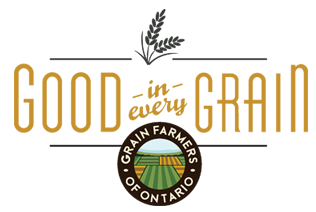Soy foods in detail: what does the science say?

Does soy affect thyroid hormones?
High-level studies (a review plus two randomized controlled trials) have found that isoflavones from soy do not appear to have adverse effects on the thyroid in people with normal thyroid functioning.
People with low thyroid function (hypothyroidism) need to be assessed by a doctor, since soy foods may slightly increase the amount of thyroid medication. To date, only animal studies and case studies have looked at answering this question. More research is needed to evaluate the potential impact of soy foods and supplements on individuals with subclinical hypothyroidism.
Does soy increase the risk of breast cancer in women?
No, in fact soy may help prevent breast cancer. Meta-analyses examining the relationship between soy intake and breast cancer incidence found that soy is associated with a reduced breast cancer risk. Soy contains several compounds that may help inhibit cancer, including protease inhibitors, phytates, and isoflavones, particularly genistein.
Average isoflavone intakes from soy foods range from 25-50 mg/day in Asia, but are closer to 1-2 mg/day in North America. And Asian women who consume more soy than North American women have a 3- to 5-fold lower breast cancer risk.
Can I eat soy foods if I have had breast cancer?
Research suggests that breast cancer survivors can also safely consume soy foods in the same range as in the typical Asian diet (25-50 mg/day in Asia (from 6 – 11 g soy protein).
These studies found that soy foods have no detrimental effect on risk of breast cancer recurrence, and may actually reduce the risk. Importantly, soy does not appear to interfere with tamoxifen or anastrozole therapy.
These studies looked at a range of soy products with different levels of isoflavone content and found that none of the products showed an increase in breast cancer risk, suggesting that enjoying either processed or traditional soy foods is acceptable for breast cancer survivors.
One study followed more than 9,500 women in the U.S. and China who had been diagnosed with breast cancer and found that those who consumed at least 10 milligrams of soy isoflavones per day (the amount in a half cup of soymilk) had a 25 percent lower chance of breast cancer recurrence than those who consumed less than 4 mg of isoflavones.
Whether a person has had breast cancer or not, the Canadian Cancer Society says that “up to 3 servings a day of soy foods, such as tofu or soy milk, may be included in the diet.”
Does soy cause fertility/reproductive problems in men?
No, the science clearly shows this is not the case. Studies have found no statistically significant effect of soy consumption from different soy sources (milk, flour, isolated protein, tofu, etc.) on:
- levels of follicle-stimulating hormone
- testosterone levels (low levels are associated with conditions causing infertility other reproductive indicators)
- sperm or semen parameters
- erectile dysfunction
It’s important to note that this myth largely stems from one human study that was popularized in the media. It focused on a 19-year old male who developed low testosterone after consuming upwards of 20 servings of soy foods daily. Ingesting that much soy represents an unbalanced diet with little variety or moderation, and is outside of the norm. It is not representative of the average male soy intake.
Recent studies indicate that soy consumption – in amounts of 2-4 servings of soy foods per day – will not affect fertility in males. A 2010 meta-analysis examined 15 studies to determine whether isoflavones exert estrogen-like effects in men. The results showed that neither soy foods nor isoflavone supplements lower testosterone levels or affect fertility in men.
A 2010 Medline literature review published in the journal Fertility and Sterility yielded similar results. The researcher found that soy does not alter testosterone or estrogen levels, and that isoflavones have no effect on sperm count and do not exert feminizing effects in men.
